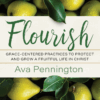Hello from Crystal Bowman!
In my twenty-plus years of writing for children, I have met many writers who want to write for children because they think it would be fun. Yes–it is fun, but far from easy. It’s a craft that needs to be mastered just like anything else. The more you know about writing for children, the harder it gets. It is very difficult to break into publishing with a children’s book, so the more you know, the more you increase your chances. In January I posted seven tips on writing for children. Today I am offering ten more.
1. Less is more — Say as much as you can with a few words as possible. Avoid the over-use of adverbs.
Rather than: She walked slowly and quietly past the baby’s room.
Use: She tip-toed past the baby’s room.
2. Use active verbs – Avoid the use of boring verbs.
Rather than: Abraham and Isaac went up the mountain.
Use: Abraham and Isaac climbed the mountain. (Drop the word up since you can only climb up.)
3. Use dialogue – Dialogue makes the people and stories come alive.
Rather than: Mother told Bobby to wear his jacket because it was cold outside.
Use: “Wear your jacket, Bobby,” said Mother. “It’s cold outside.”
4. He said/she said tag lines – Tag lines (dialogue attribution) tell the reader who is speaking. In novels they are sometimes omitted when it’s obvious who is speaking, but children need to know who is speaking at all times. Do not get creative with the word said when writing for children. Words like replied, exclaimed, remarked, are too adult (many writers do not even use them in adult stories). The focus needs to be on the dialogue and not on the tag line.
For a statement, use said: “Let’s be friends,” said Jamie.
For a question, use asked: “Where are the swings?” asked Lily.
Also, you cannot “laugh” or “sigh” words.
Incorrect: “My shoes are on the wrong feet!” laughed Sarah.
Correct: Sarah laughed. “My shoes are on the wrong feet!” she said.
5. Punctuation – Always use proper punctuation. Do not get cutesy and creative with extra punctuation marks!?!?!!! (one punctuation is enough!)
6. Use concrete nouns – Children do not understand abstract words or words that are concepts. Use concrete nouns you can visualize like tree, car, flower, baby, and apple. Abstract nouns are hard to visualize like peace, hope, and faith. If you need to use an abstract noun, then follow it with an explanation. For example: Abraham had faith. He believed everything that God told him. He knew God’s words were always true.
7. Use specific and descriptive language. For example: On the fifth day, God said, “Let the waters be filled with living things.” Sharks and whales and jelly fish were soon swimming in the seas. Then God said, “Let the birds fly in the air above the earth.” And just like that, eagles were soaring through the sky and robins were building their nests in maple trees.
8. Avoid metaphors – Young children are literal and do not have an understanding of metaphors. If you said: When it was my turn to sing, I had butterflies in my stomach, a young child would imagine that the person had real butterflies in his or her stomach! However, if you said: When it was my turn to sing, my stomach felt all tingly inside, a child would understand that.
9. Age-appropriate vocabulary – Writers often use words that are too advanced or too adult for young children. The challenge is to use fun and creative words that are simple enough for young children to understand.
Rather than: We noticed that the eggs had mysteriously disappeared from the robin’s nest.
Use: We looked in the robin’s nest and the eggs were gone! Where did they go?

Children’s Writer’s Word Book
10. A great resource! – The Children’s Writer’s Word Book is something every children’s writer needs. It lists specific words that are introduced at seven key reading levels (kindergarten through sixth grade). It gives advice and tips on word usage and vocabulary development. It also offers a thesaurus so that when you look up a word, it will not only tell you the grade level of that word, but also give synonyms at different levels. For example, the word hum is a first grade word and its synonyms with grade levels are: buzz (5th), murmur (4th), sing (1st), vibrate (5th). This book is especially helpful if you are writing for beginning readers..
If you have a children’s story that you think is ready to submit to a publisher, please do one more thing. Have your story edited by a children’s editor or author. It will be worth the effort as they may spot something that you might have missed.
Here’s to great writing!
Crystal


